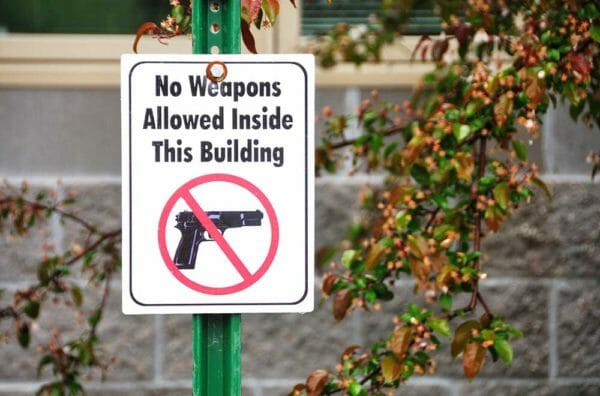
On September 14, 2022, at a postal facility in Tampa, Florida, Postal Inspector agents tried to apprehend Emmanuel Ayala, an employee of the postal service, for carrying a firearm on postal premises, which is against the law as per 18 U.S.C. § 930(a). Ayala had a valid Florida Concealed Carry Permit. He often carried a 9mm pistol in a fanny pack for self-defense.
Ayala fled from postal inspector agents, so a resisting arrest charge was included. An indictment was filed more than a month later. A warrant was issued on October 27th, and Ayala was arrested on November 16, 2022. Counsel was appointed and Ayala was released from custody on the same day, and discovery was ordered in the case.
Ayala filed a motion to dismiss the case, citing the Supreme Court Bruen decision on January 5, 2023. The Bruen decision restored Second Amendment rights, which have been infringed for several decades.
On January 12, 2024, United States District Judge Kathryn Kimball Mizelle filed the order dismissing the charge of possessing a firearm in a federal facility as violating Ayala’s Second Amendment rights. From the order on courtlistener:
The United States indicted Emmanuel Ayala, a postal worker, for possessing a firearm in a Federal facility in violation of 18 U.S.C. § 930(a). Ayala argues that statute is unconstitutional as applied to him because the historical record does not support a law banning firearms in post offices. See N.Y. State Rifle & Pistol Ass’n v. Bruen, 597 U.S. 1 (2022). Relying on dicta from earlier cases, the United States responds that the Second Amendment allows it to punish the bearing of arms inside any government building. But the Supreme Court has been clear: the government must point to historical principles that would permit it to prohibit firearms possession in post offices. See id. at 17, 24. The United States fails to meet that burden. Thus, I dismiss the § 930(a) charge because it violates Ayala’s Second Amendment right to bear arms.
Judge Mizelle noted the Biden administration gave short shrift to historical analysis of the case. She was not required to do historical analysis. Historical analysis to find support for a gun control law is the burden of the prosecution in Second Amendment cases. Judge Mizelle undertook extensive historical analysis for her opinion, as she could elect to do. Here is a summation of her findings from page 11 of the filed opinion;
Since the Post Office’s creation, mail carriers have faced the risk of violence. Passengers of nineteenth-century stagecoaches, which carried mail, “risked death or injury if coaches were attacked by robbers or Indians.” USPS, AN AMERICAN HISTORY at 5, 17. Recognizing this reality, Congresses in the first half of the nineteenth century appropriated money to reward individuals who helped apprehend postal robbers. See, e.g., An Act for the Relief of D.W. Haley, ch. 66, 25 Stat. 713 (1838). In the latter half of the nineteenth century, when locomotive became the dominant way to move mail, bandits threatened postal workers aboard trains. Colorado Train Robbers, N.Y.TIMES, 2 Sept. 1891, at 8. Yet the federal government never sought to ban firearms to protect employees or secure mail delivery. In fact, when mail train robberies became a growing threat in the early twentieth century, the Postmaster General armed railway mail clerks with “government-issued pistols” from World War I. USPS,AN AMERICAN HISTORY at 23, 107.
The ban on firearms in post offices is very recent. It was put in place in 1972. There is no historical precedent to indicate that a ban on carrying weapons in post offices had ever existed before 1972.
Judge Mizelle dismissed the notion the government could ban firearms because it owned the property. Judge Mizell stated there was no historical precedent for such an interpretation. If the government were given such power, it would be a backdoor ban on the right to bear arms.
Ayala still faces charges of resisting arrest. He has filed a motion claiming the resisting arrest charge is moot because the arrest was not valid if the law was unconstitutional.
Future court proceedings will decide the resisting arrest issue.
About Dean Weingarten:
Dean Weingarten has been a peace officer, a military officer, was on the University of Wisconsin Pistol Team for four years, and was first certified to teach firearms safety in 1973. He taught the Arizona concealed carry course for fifteen years until the goal of Constitutional Carry was attained. He has degrees in meteorology and mining engineering, and retired from the Department of Defense after a 30 year career in Army Research, Development, Testing, and Evaluation.

from https://ift.tt/MOZtylT
via IFTTT

No comments:
Post a Comment